Navigating Iverheal 3 mg: Medical Insights & Patient Guidance
What is Iverheal 3 mg?
Ivermectin, found in Iverheal 3 mg, targets glutamate-gated chloride channels within the parasite’s nerve and muscle tissue. This action increases the permeability of the cell membrane to chloride ions, causing paralysis and death of the parasite.
Iverheal 3 mg is generally well tolerated, with a strong safety profile when used appropriately. Its use is particularly important in areas where parasitic infections are endemic and can significantly improve quality of life when administered properly.
Medical Uses and Applications
Iverheal 3 mg is prescribed for a range of parasitic infections, including:
FDA-Approved or Common Uses:
- Strongyloidiasis: A roundworm infection that can cause gastrointestinal and systemic symptoms.
- Onchocerciasis (River Blindness): A disease caused by the Onchocerca volvulus worm, leading to skin issues and possible vision loss.
- Scabies: This skin condition is caused by the microscopic mite Sarcoptes scabiei and is easily spread through close contact
- Pediculosis (Lice): Used off-label for head lice treatment when topical agents are ineffective.
Other Investigational or Off-Label Uses:
- Filariasis
- Cutaneous larva migrans
- Rosacea (papulopustular subtype)
Global usage patterns and regional differences
The way Iverheal 3mg gets used varies dramatically around the world. In tropical regions, it’s often included in mass drug administration programs to combat parasitic diseases. Some countries even distribute it annually in areas where river blindness is endemic.
In contrast, Western nations typically reserve it for confirmed parasitic infections. The accessibility differs too – it’s available over-the-counter in some countries but strictly prescription-only in others.
Treatment protocols involving Iverheal 3mg
Treatment with Iverheal 3mg follows specific protocols depending on the condition:
- A single dose of about 200 micrograms per kilogram of body weight is used to treat strongyloidiasis.
- For river blindness: Single dose every 6-12 months
- Off-label use for scabies involves one dose, with a second dose usually administered after 1–2 weeks.
Timing matters too. The medication works best when taken on an empty stomach with water. Most protocols include follow-up testing to confirm the infection has cleared completely.
Therapeutic classification and mechanism of action
Iverheal 3mg falls into the antiparasitic drug family. Think of it as a specialized bouncer that kicks out unwanted parasitic guests from your body.
The magic happens when ivermectin binds to specific parts of parasite nerve and muscle cells. This binding causes increased permeability to chloride ions, which essentially paralyzes the parasites. When they can’t move, they can’t survive. It’s like freezing them in their tracks so your body can sweep them away.
The beauty of ivermectin is its selectivity – it targets parasites while generally leaving human cells alone.
Available forms and dosage strengths
Iverheal comes in tablet form, with 3mg being one of the common dosage strengths. The tablets are designed for oral administration – simply swallow with water.
Besides the 3mg version, you might also find:
- Iverheal 6mg (double strength)
- Iverheal 12mg (quadruple strength)
Standard dosing instructions for different conditions
Iverheal 3mg (ivermectin) dosages vary based on what you’re treating. For most parasitic infections, adults typically take a single dose of 0.2mg/kg of body weight. This means:
- If you weigh 50-80kg: One 3mg tablet
- If you weigh 81-110kg: Two 3mg tablets
- If you weigh 111-130kg: Three 3mg tablets
For stubborn infections like strongyloidiasis, your doctor might recommend repeating the dose after 2 weeks. With scabies, a single dose works for most people, but some need a second dose 7 days later.
Timing considerations: with or without food
Taking Iverheal 3mg with food boosts absorption by 2.5 times compared to an empty stomach. A high-fat meal works best. The simple rule? Take it with your largest meal of the day for maximum effectiveness.
What to do in case of missed doses
Missed your Iverheal dose? Don’t double up! Take it promptly when remembered, but skip it if your next dose is near. Since most treatments involve just one or two doses, call your doctor if you’re unsure what to do next.
Duration of typical treatment courses
Most Iverheal treatments are short:
- Parasitic infections: Single dose
- Scabies: One or two doses, 7 days apart
- Strongyloidiasis: One or two doses, 14 days apart
Keep taking the medication until the end of the course, even if you feel well sooner.
Proper Administration and Dosage Guidelines
- Dosage:
The dose is generally based on body weight (e.g., 200 mcg/kg) and the type of infection. Your doctor will determine the correct dosage. - How to Take It:
- Take on an empty stomach (at least 1 hour before or 2 hours after a meal).
- Swallow with a full glass of water.
- Avoid alcohol or grapefruit juice unless cleared by your doctor.
- Missed Dose:
If a dose is missed, take it as soon as you remember. If it’s close to the time of your next dose, skip the missed dose. Do not double up. - Treatment Duration:
Some infections require a single dose, while others may need repeated dosing after several days or weeks.
Safety Profile and Considerations
Common Side Effects:
- Dizziness
- Headache
- Nausea
- Fatigue
- Diarrhea
Serious Side:
- Swelling of face, lips, or tongue (possible allergic reaction)
- Severe rash or itching
- Vision problems
- Confusion or loss of consciousness
Driving and Machinery Use:
- Iverheal 3 mg may cause dizziness or drowsiness.
- Refrain from driving or handling machinery until you are aware of its effects on you.
Drug Interactions:
- Inform your doctor of all medications and supplements, especially:
- Blood thinners (e.g., warfarin)
- Sedatives
- Antifungal medications
Patient Information and Support
- Use strictly according to the instructions of a licensed healthcare professional.
- Do not share the medication with others, even if symptoms are similar.
- Pregnant or breastfeeding women should only use this medication if clearly needed and prescribed.
- Report any adverse effects to your doctor or local health authority.
Research and Future Directions
Ivermectin is continuously being studied for:
- New antiparasitic indications
- Antiviral activity, including investigations related to tropical viruses and past interest in SARS-CoV-2 (COVID-19)
- Use in skin disorders like rosacea and demodicosis
- Mass drug administration programs to eradicate parasitic diseases in endemic countries
Current Research Areas Include:
- Improving bioavailability with advanced formulations
- Studying drug resistance in parasites
- Investigating potential in broader infectious disease treatment
Storage
1. Temperature Range
- Store at typical indoor temperatures, ideally between 20°C and 25°C (68°F to 77°F).
- Temporary exposure to temperatures between 15°C and 30°C (59°F to 86°F) is generally acceptable for short periods.
2. Keep in a Dry Place
- Store in an area with low humidity.
- Avoid storing in bathrooms, near sinks, or kitchens where moisture is common.
- Exposure to moisture can cause tablets to break down prematurely or lose potency.
3. Protect from Light
- Store the medication in its original box or container until you are ready to use it.
- Do not expose the tablets to direct sunlight or strong artificial light.
- Prolonged light exposure may lead to chemical degradation.
4. Original Container
- Always keep Iverheal 3 mg in its original blister pack or bottle, which is designed to protect it from environmental elements.
- Ensure the container is tightly closed if it comes with a screw cap.
5. Store away from children and animals.
- Keep in a safe, high location to prevent accidental swallowing by kids or pets.
- Consider using a locked medicine cabinet if children are present in the household.
6. Special Considerations
🚫 Do Not Use Without Medical Guidance If:
- You have liver disease or compromised immune function.
- You are pregnant or breastfeeding (use only if clearly needed and prescribed).
- You are taking other medications that may interact (e.g., blood thinners, sedatives).
⚠ Take Extra Caution:
- In elderly patients or those with underlying neurological disorders.
- When taking with alcohol or grapefruit juice, which can affect drug metabolism.
Monitoring and Follow-Up
- Clinical follow-up may include lab tests, symptom tracking, and repeat treatment cycles if needed.
- Side effects, although rare, should be reported promptly, especially neurological or allergic symptoms.
Conclusion
Iverheal 3 mg, containing the active ingredient Ivermectin, is a trusted and effective antiparasitic medication widely used to treat a variety of parasitic infections. Its proven mechanism of action, ease of administration, and broad applicability make it a key therapeutic option in both individual treatment and public health programs.
However, like all medications, it must be used responsibly and under proper medical supervision to ensure safety and efficacy. Adhering to prescribed dosage, understanding potential side effects, and communicating openly with healthcare providers are essential steps for optimal outcomes.

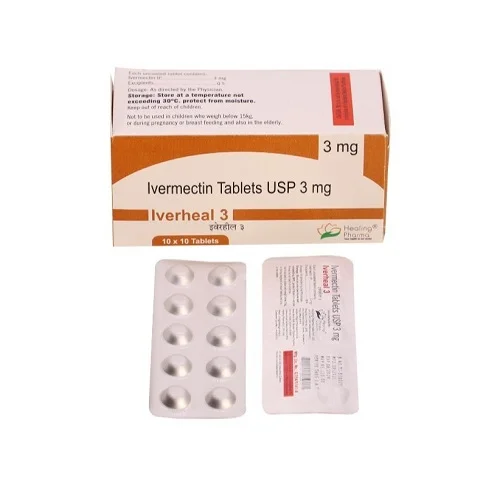
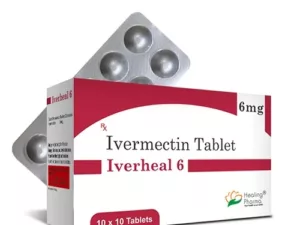

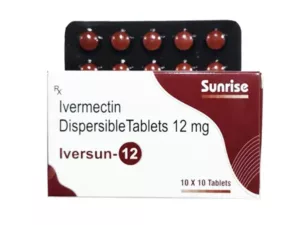
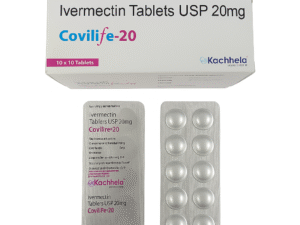
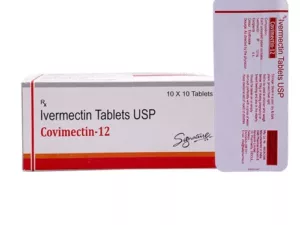
Errol Andrews –
Excellent customer service and fast response.
Gerald Hardison –
Very simple to order and arrives on schedule
William (verified owner) –
This medicine has helped me maintain balanced energy levels throughout the day. I feel more focused at work and less stressed. Plus, my digestion has improved significantly since I started taking it.
John (verified owner) –
Improved my overall wellness, worth every penny.
Anthony (verified owner) –
As an athlete, I need all the support I can get. This product has helped me recover faster and feel more energetic. I’ve noticed a real difference in my endurance and overall performance.
Angel (verified owner) –
Natural ingredients, no side effects. Excellent product!
Robert (verified owner) –
Natural ingredients, no side effects. Excellent product!